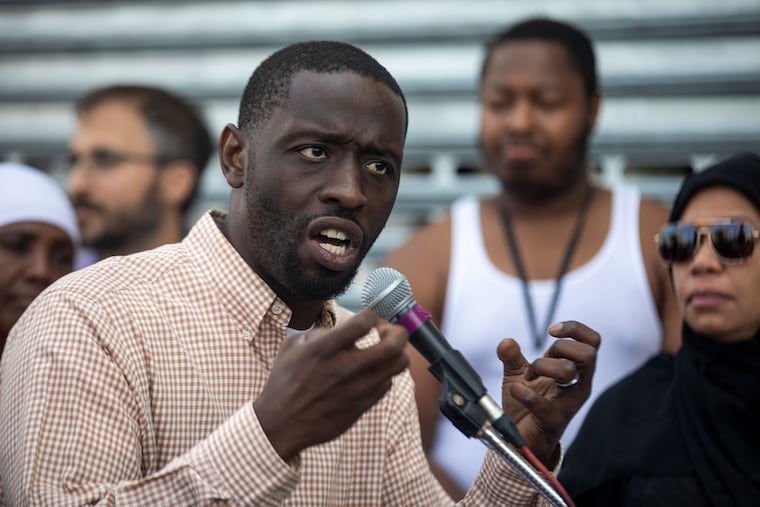Stop-and-frisk doesn’t work in Philly, says City Council member
Isaiah Thomas has been stopped by police — as a driver and as a pedestrian — more times than he can count. There are more effective ways to address crime in Philadelphia, he argues.

I turned 38 this month, and I have been stopped by police — as a driver and as a pedestrian — more times than I can count. These interactions, beginning for me in high school, have not been in the name of public safety — contraband was never found, an arrest was never made — but in the name of discrimination. As a young Black man, I fit a description then, and I still fit that description today.
Random stops disproportionately target Black and brown residents, without resulting in a significant return on investment. With these practices in place, Black and brown communities are more likely to distrust law enforcement, and then become less likely to cooperate with officers or consider a career in law enforcement, which may help explain some of the Police Department’s ongoing problems with staffing and vacancies. If we could restore some of that trust, more people of color might apply for careers in the Police Department, which could help with community trust as well.
As a city, we need to look to our past to best understand the next steps. And Philadelphia doesn’t have a good history with stop-and-frisk.
» READ MORE: We need to talk about stop-and-frisk, says City Council president
About 10 years ago, the City of Philadelphia was sued by the American Civil Liberties Union (and others) because the Philadelphia Police Department was becoming known for discrimination and racism in regard to pedestrian stops. This lawsuit and the resulting (still active) consent decree created a database of all police-initiated stops. Last year, this same lawsuit produced a pilot program in overpoliced neighborhoods that would further reduce the use of stop-and-frisk for minor violations.
I have spoken at length about these issues, but as calls are renewed for stop-and-frisk and other policing tactics that have hurt neighborhoods like mine, I wanted to shift focus to speak about other approaches that I believe will be more effective.
I led the fight for Driving Equality in Philadelphia, which prevents police from stopping drivers because of minor violations, such as a single broken taillight. I know firsthand that many of these traffic stops are traumatizing and humiliating; many of these traffic stops are also the first interaction between a person of color and law enforcement. I’ve also learned from the data about police-initiated stops that they aren’t an effective tool for ensuring public safety.
“I know firsthand that many of these traffic stops are traumatizing and humiliating.”
We could have introduced and passed Driving Equality within a month, but we intentionally took over a year. To truly work on this deep and complex issue, we helped arrange a series of meetings between the Kenney administration, the Police Department, community leaders, and the Defender Association of Philadelphia to discuss traffic stops.
We first looked at the motor vehicle code and discussed, point by point, which laws had been rooted in public safety (and should be enforced with a traffic stop) and which ones had been rooted in discrimination (and should be reclassified to not be enforced with a traffic stop). Using this logic, we considered having dice hanging from a rear-view mirror was not a threat to public safety, but tinted windows may warrant a traffic stop. This detail-oriented, collaborative approach brought law enforcement and community leaders to the table as equal partners and found a compromise that brought the most amount of good to the most amount of people.
We need everyone at the table — particularly members of communities affected by rising crime rates — if we are going to be serious about public safety. That includes elected officials at every level and branch of government, as well as representation from law enforcement and the people and neighborhoods most impacted. Similar to the process of crafting Driving Equality, we need every community to share their perception of the problem and their preferred solutions.
I know the Philadelphia that raised me. I’m fighting with my Council colleagues, the Defender Association, the police, and anyone else interested to make the next decades safer and more equitable.
Isaiah Thomas is a councilmember at-large representing the entire city of Philadelphia. This is his first term on Philadelphia City Council. He lives in Oak Lane with his wife Klissa and their sons, Isaiah Jr. and Isaac.